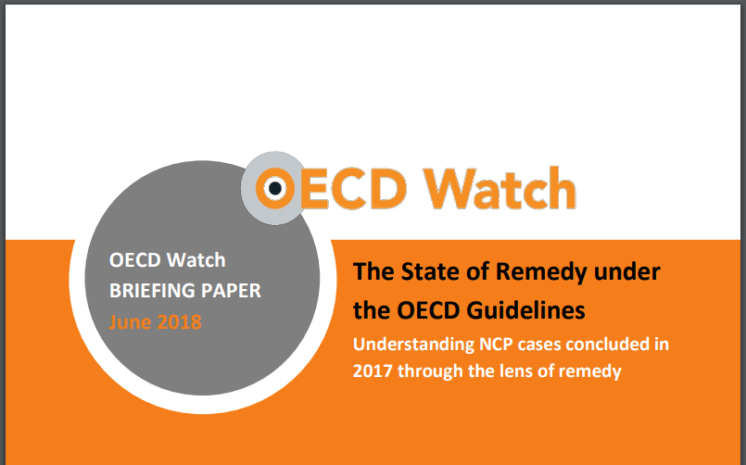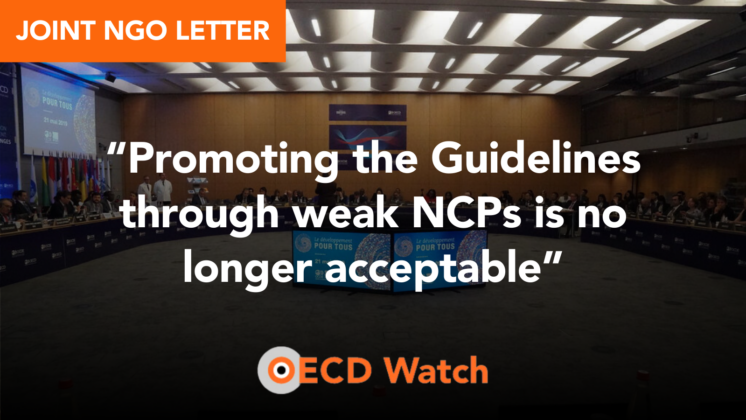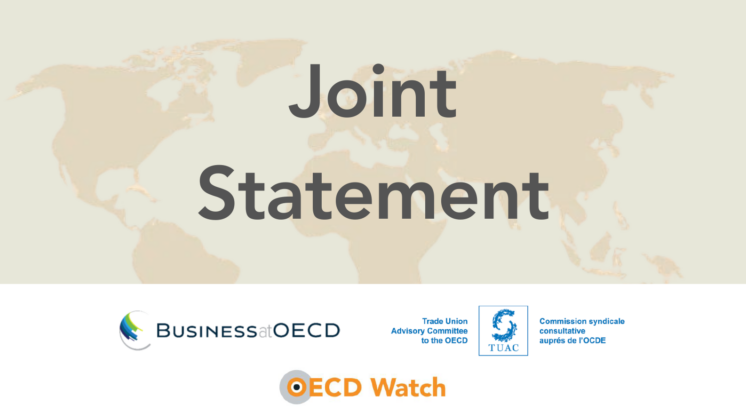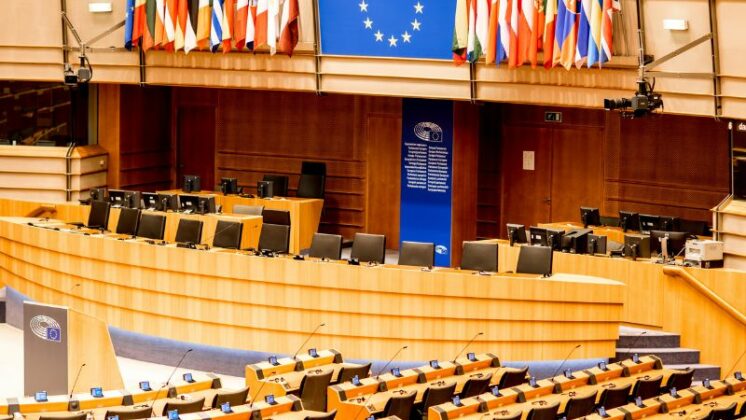The OECD Guidelines for Multinational Enterprises (Guidelines) have unique potential to strengthen the global system of corporate governance and provide access to remedy for the victims of corporate misconduct. But how effective were NCPs in terms of providing effective access to remedy in 2017? OECD Watch is today releasing a briefing paper which explores this question: “The State of Remedy under the OECD Guidelines, Understanding NCP cases completed in 2017 through the lens of remedy”.

In 2017, NCPs globally concluded 18 OECD Guidelines cases filed by NGOs or communities. The briefing paper identifies and analyses the outcomes of those 18 cases to identify what positive impact the cases may have had and what challenges complainants may have faced in accessing remedy through NCPs. As such, this report serves as a remedy-focused supplement to the 2017 NCP Annual Report prepared by the OECD secretariat.
The briefing paper shows that of the 18 cases concluded in 2017, only one (5%) – a bright spot in the case of Former employees v. Heineken – resulted in a compensatory remedy and a concrete improvement in the situation of the complainants. In total, only five (27%) of the 18 cases resulted in some element of remedy for complainants, such as an acknowledgement of wrongdoing in the form of a determination of a company’s breach of the Guidelines, or an agreement to improve company policies. This means that in 73% – nearly three-quarters – of the cases concluded in 2017, no remedy-related outcome whatsoever was achieved for the victims of corporate misconduct.
Please access the briefing paper here.














